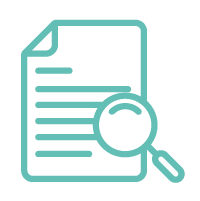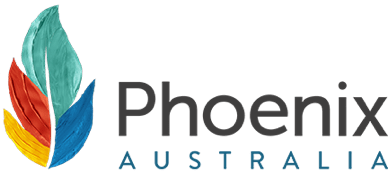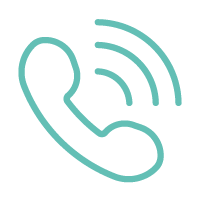

RESEARCH PROGRAM
SOLAR Program
SOLAR was developed by international experts in trauma and/or disaster mental health following a two day roundtable. It is a brief, five-session program that helps people build skills so that they can better look after themselves following a traumatic event. SOLAR is delivered by trained Coaches who do not need to have a background in mental health training. Coaches can be community members, frontline disaster workers, or health care workers.
We are committed to developing an evidence base for SOLAR. Studies to date have shown SOLAR to be safe to deliver, acceptable for participants, and efficacious. The following studies have been published in the peer review literature. We are still testing SOLAR in new situations/populations, delivery modalities (eg., group and individual modalities) and through digital delivery.
Publications to date

In the aftermath of disaster, a large proportion of people will develop psychosocial difficulties that impair recovery, but for which presentations do not meet threshold criteria for disorder. Although these adjustment problems can cause high distress and impairment, and often have a trajectory towards mental health disorder, few evidence-based interventions are available to facilitate recovery.
This paper describes the development and pilot testing of an internationally developed, brief, and scalable psychosocial intervention that targets distress and poor adjustment following disaster and trauma. The Skills fOr Life Adjustment and Resilience (SOLAR) program was developed by an international collaboration of trauma and disaster mental health experts through an iterative expert consensus process. The resulting five session, skills-based intervention, deliverable by community-based or frontline health or disaster workers with little or no formal mental health training (known as coaches), was piloted with 15 Australian bushfire survivors using a pre-post with follow up, mixed-methods design study. Findings from this pilot demonstrated that the SOLAR program was safe and feasible for non-mental health frontline workers (coaches) to deliver locally after two days of training.
Participants’ attendance rates and feedback about the program indicated that the program was acceptable. Pre-post quantitative analysis demonstrated reductions in psychological distress, posttraumatic stress symptoms, and impairment. This study provides preliminary evidence that the delivery of the SOLAR program after disaster by trained, frontline workers with little or no mental health experience is feasible, acceptable, safe, and beneficial in reducing psychological symptoms and impairment among disaster survivors. Randomized controlled trials of the SOLAR program are required to advance evidence of its efficacy.

The Skills for Life Adjustment and Resilience (SOLAR) programme is a brief, scalable, psychosocial skill-building programme designed to reduce distress and adjustment difficulties following disaster. We tested the feasibility, acceptability, efficacy and safety of a culturally adapted version of SOLAR in two remote, cyclone-affected communities in the Pacific Island nation of Tuvalu. This pilot adopted a quasi-experimental, control design involving 99 participants. SOLAR was administered to the treatment group (n = 49) by local, non-specialist facilitators (i.e. ‘Coaches’) in a massed, group format across 5 consecutive days. The control group (n = 50) had access to Usual Care (UC). We compared group differences (post-intervention vs. post-control) with psychological distress being the primary outcome. We also examined whether changes were maintained at 6-month follow-up.
Large, statistically significant group differences in psychological distress were observed after controlling for baseline scores in favour of the SOLAR group. Mean group outcomes were consistently lower at 6-month follow-up than at baseline. SOLAR was found to be acceptable and safe, and programme feedback from participants and Coaches was overwhelmingly positive.Findings contribute to emerging evidence that SOLAR is a flexible, culturally adaptable and scalable intervention that can support individual recovery and adjustment in the aftermath of disaster. RCTs to strengthen evidence of SOLAR’s efficacy are warranted.

Many disaster and trauma survivors experience persistent subclinical distress that places them at risk of developing a mental health disorder. This study describes the first European feasibility study of a brief and scalable skills-based intervention targeting persistent subclinical distress following disasters and trauma. Randomized controlled feasibility study of the Skills fOr Life Adjustment and Resilience (SOLAR) group program. German trauma survivors (N = 30) with subclinical symptoms of depression, anxiety, or posttraumatic stress disorder or functional impairment, but no current mental disorder other than adjustment disorder, were randomized to the SOLAR group program (n = 15) or to a wait-list control group (n = 15).
The primary outcome was feasibility, operationalized through eligibility rate, recruitment speed, treatment adherence, dropout rate, and participant satisfaction with the program. Secondary outcomes were psychological distress, symptoms of insomnia, posttraumatic stress disorder, patient-centered outcomes, quality of life, and perceived social support. Eligibility rate was 33.6%; recruitment speed was two days per participant; 92.9% completed at least four of five sessions; dropout rate was 10.0%; 92.3% were “very satisfied” with the program. Between-group change scores showed a large effect size for patient-centered outcomes. Medium effect sizes were found for symptoms of insomnia, perceived social support, and quality of life. Small effects were identified for reductions in distress and functional impairment. The application of the SOLAR group program within a randomized controlled trial was feasible. Its efficacy should be further tested in a larger trial. (PsycInfo Database Record (c) 2021 APA, all rights reserved)

